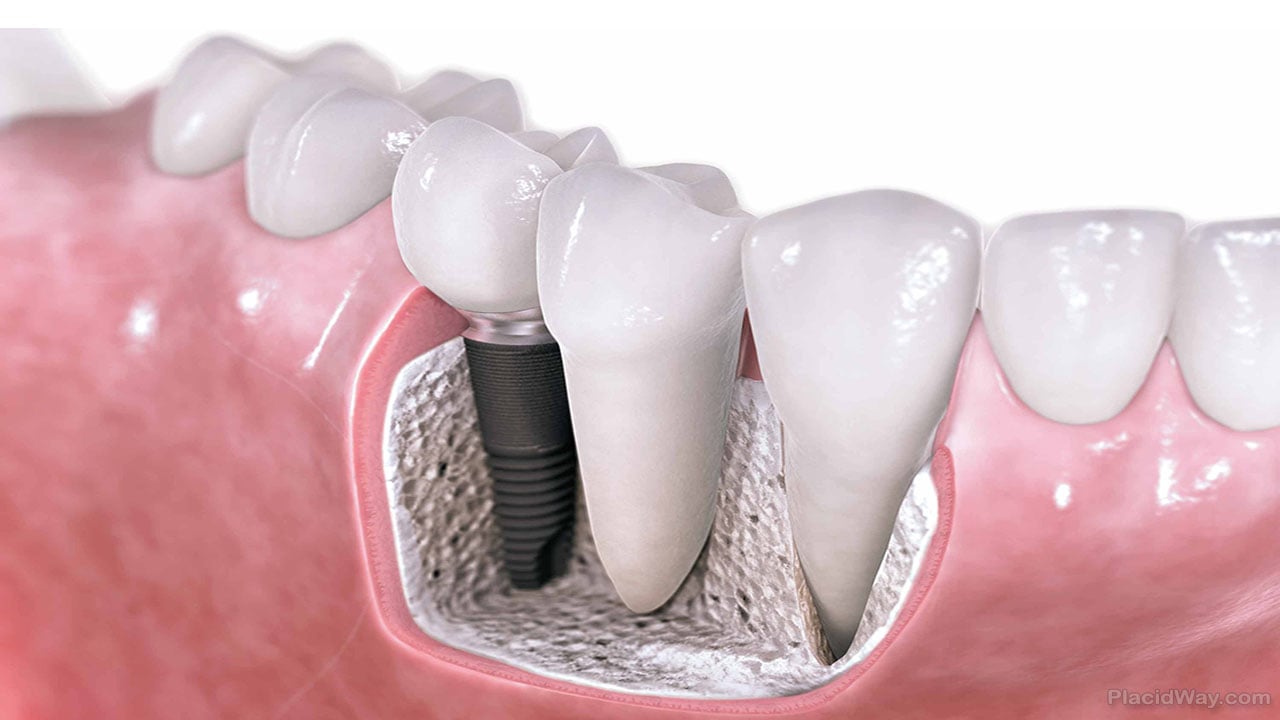Dental implants are the second best after natural teeth: they are extremely durable and look like the patient was born with them. But sufficient oral hygiene is of even greater importance when wearing dental implants. In our article, we detail all the measures that contribute to the implant being an aesthetical tooth replacement method for a long time.

The implant might be made of non-organic materials, but the gum tissue and the bone structure of the jaw, both supporting the implant, is prone to diseases when not taken care of immaculately. Implants differ fundamentally from natural teeth mainly due to the absence of the so-called periodontal ligament. This is a special kind of tissue, holding the teeth in place. This connective tissue has a rich vascular system, which effectively prevents gum and tooth infections. The gum tissue surrounding the implant lacks this kind of blood supply, hence, the gums and the jawbone are more prone to infections, resulting in pain, distress, or even bone loss.
Implant-care by the Dentist
This is why frequent tartar removal is crucial when having an implant. Tartar is the thin layer of hardened-up plaque, gathering on and around the implant or natural tooth, and containing a large amount of bacteria. Dentists usually use water irrigation and ultrasonic devices for tartar removal, providing the most meticulous and precise cleansing. During the process the dentist uses resin or plastic tools to prevent causing damage to the implant.

Everyday Caring Methods for Implants
But there is only so much a dentist could do. The rest is up to the patient to take care of their implants by maintining thorough oral care. Besides brushing teeth twice a day, frequent use of interproximal brushes and dental floss is recommended to get rid of every single plaque particle from the interdental regions and the neck of the implant, where significant amount of bacteria can gather.
Also, between brushings, use of oral irrigators is suggested, which can clean out all the debris and bigger food particles. These, if staying in the mouth for a longer time can result in serious infections, due to bacteria growth. The brushing ritual should always end with the use of an antibacterial mouthwash, providing fresh breath, and killing all bacteria remaining in the mouth.
Last, but not least, the product used for brushing the teeth must not be high-abrasive, in order to prevent the surface of the implant crown from being scratched. Tooth cleaning products like smoker’s toothpaste, or products containing sodium fluoride, baking soda, stain removers should also be avoided. By sticking to this routine, implants should last and serve their purpose for a lifetime.

